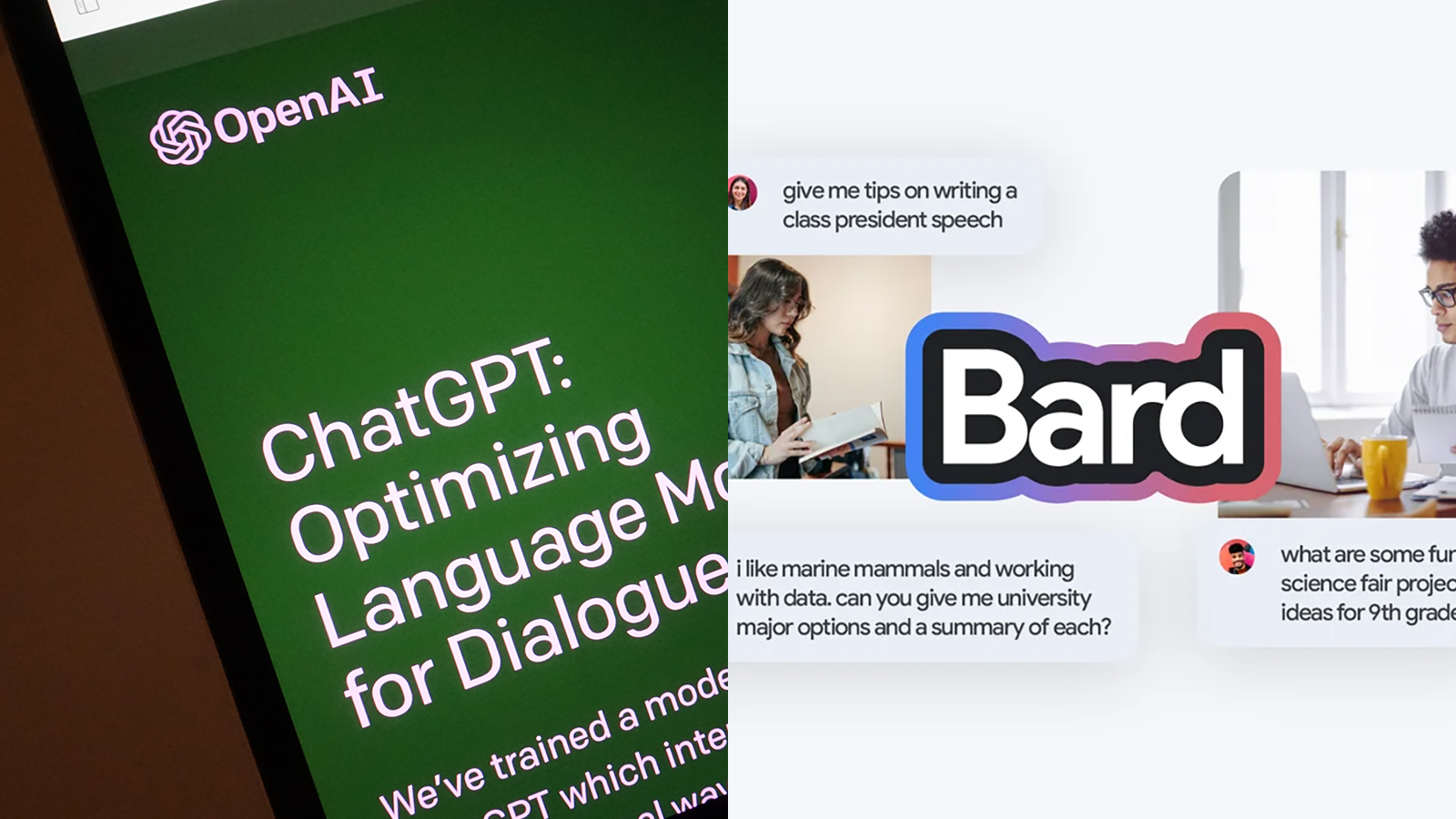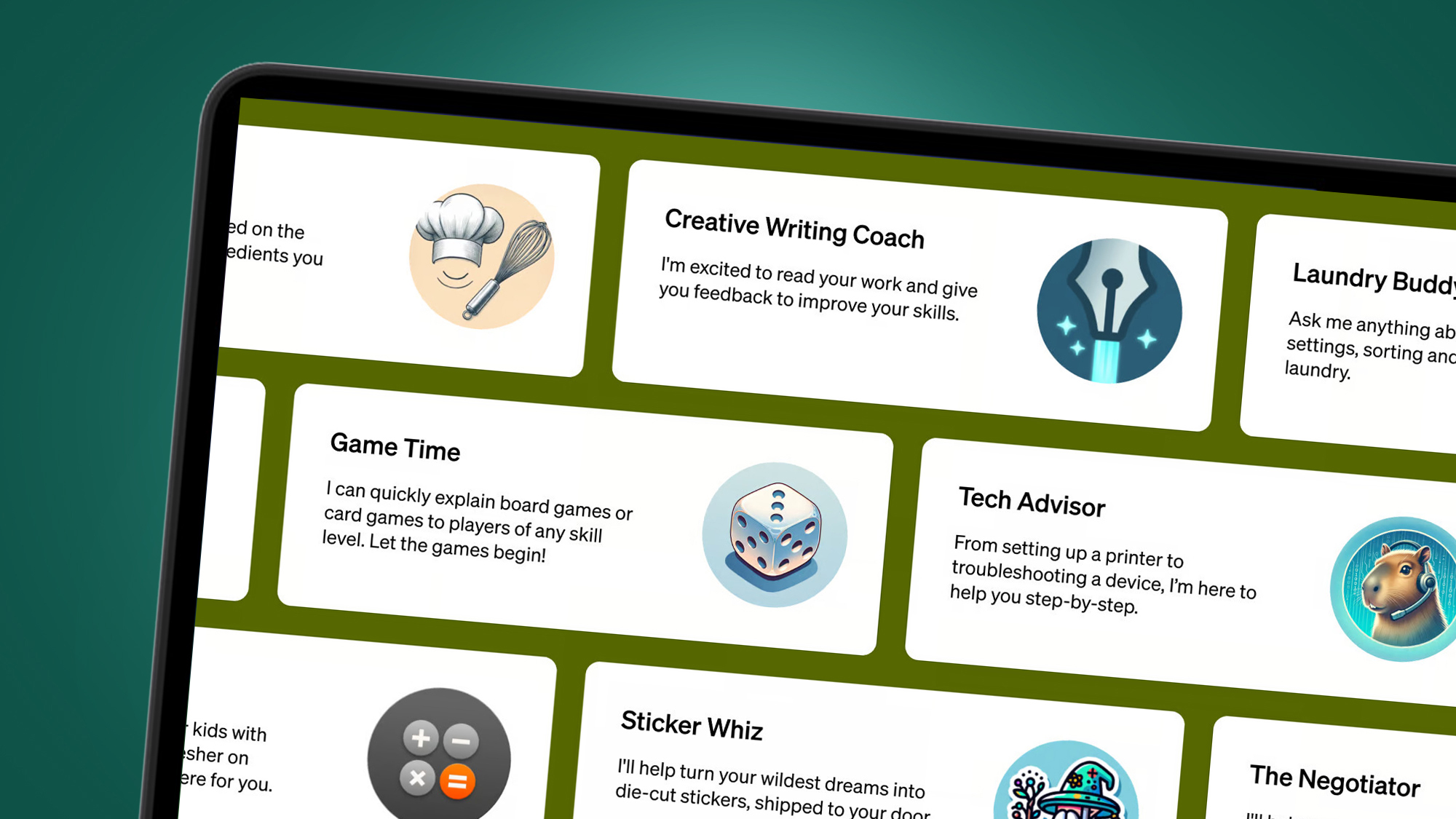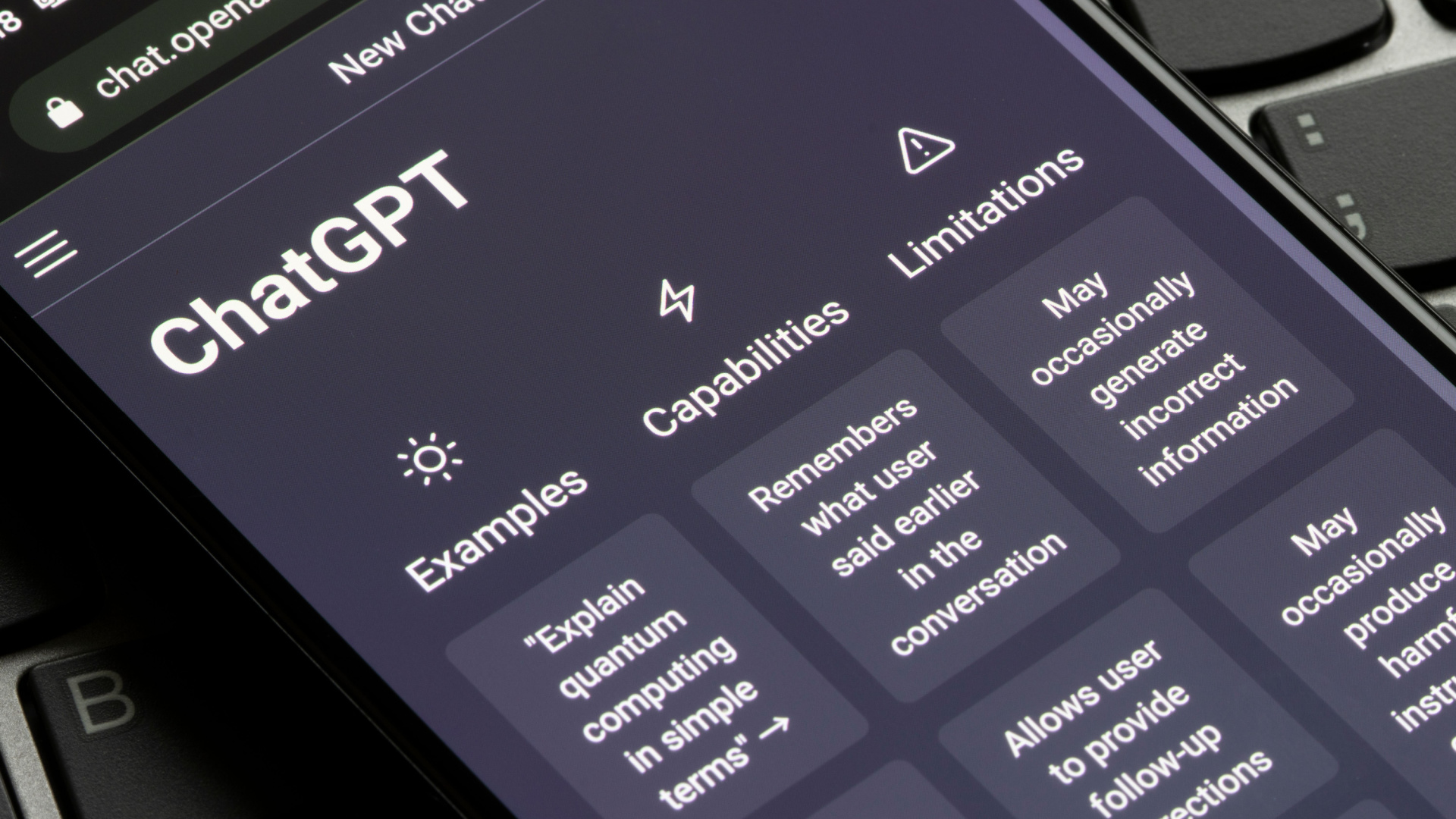ChatGPT vs Google Bard: which AI chatbot will win in 2024?
A lot is likely to change in the next 12 months

Sign up for breaking news, reviews, opinion, top tech deals, and more.
You are now subscribed
Your newsletter sign-up was successful
It's been a whirlwind year for generative AI bots, and it looks likely that the next 12 months are going to see the tech advance at an even faster pace. The big two right now are ChatGPT from OpenAI and Google Bard – but which one will end up on top as 2024 ends?
While we don't profess to have any magical soothsaying abilities, we can look forward to what the future holds for these two AI engines, both built on Large Language Models (LLMs) and both of which tap into vast amounts of training data to produce blocks of text and images from scratch, based on your prompts.
Now that generative AI is here, it's not going to go away, and it will continue to transform everything from online publishing to the search for new knowledge. Here's what might be ahead for ChatGPT and Bard.
How the chatbots compare

ChatGPT opened its doors to the web in November 2022, while Google Bard didn't appear until March 2023. Though Google has long been pushing AI across its products, as far as generative AI is concerned, it feels as though it's been playing catch up.
Towards the end of 2023, OpenAI announced a bunch of new features for ChatGPT, including the ability to create custom bots. There is a key distinction here, though, because ChatGPT has both a free and a paid-for Plus tier, while Bard is simply free for everyone.
A lot of the features that set ChatGPT apart from Bard, including the ability to analyze uploaded PDFs, build custom bots, and produce generative AI images (via DALL-E), are exclusive to Plus subscribers paying $20 (about £16 / AU$30) a month.
Google's own late-2023 update for Bard came in the form of Gemini, the upgraded AI model that promises faster results and even better performance than the GPT-4 engine that powers ChatGPT Plus. It's also worth noting that Google has been busy connecting Bard up to all of its other apps.
Sign up for breaking news, reviews, opinion, top tech deals, and more.
In terms of the basics of generating text and code, both ChatGPT and Google Bard are now at a high level. Both can analyze images as prompts, and both can access the web to get up-to-date information – though again, that's a Plus exclusive for ChatGPT.
What's next in 2024?

1. More multimodal AI
These chatbots are already multimodal – meaning they can accept different types of input, such as text and images – but they're going to get even more versatile and even easier to work with as we go through the next 12 months.
2. More personalization
It's a good idea to be cautious when it comes to giving AI too much of your (or your company's) information, but more personalization options are likely to be available to those who want them. This should make responses more relevant to individual users.
3. More tools
OpenAI is set to launch its AI bot store at some point during 2024, and the likelihood is that both ChatGPT and Google Bard will be plugged into more and more apps and services going forward, ready to be used for specific tasks.
It might seem a bit of a cop out to say that we'll see more of the same in 2024, but that's what's most likely to happen. These AI models will almost definitely get faster at responding, be more accurate in their answers, and gain extra capabilities – the ability to generate images inside Bard, for instance.
Neither Google nor OpenAI has gone on the record in terms of giving us a long-term roadmap for their bots, so we're a bit in the dark when it comes to new features and functions that might arrive.
What we do know is that Google makes a whole load of hardware and software products, and Bard is going to continue to reach out across them all. It has already been announced that Google Assistant will get Bard's AI smarts at some point in the future, though it's not certain exactly when that will happen.
As for OpenAI, after some boardroom drama, we know the launch of its AI app store is being pushed back to 2024. Google already has an ecosystem that Bard can plug into, while OpenAI is trying to build out its ecosystem.
Choosing a winner

It's tricky to predict whether it'll be ChatGPT or Google Bard leading the generative AI chatbot race by the time that 2024 comes to an end, but we can give it our best educated guess – which is that they'll both be thriving in different ways.
With custom GPTs and the GPT app store, it's likely that ChatGPT is going to find its way into more apps, more websites, and more third-party services: plenty of people are going to try to build a business on top of the AI, which will push progress forward.
We also know, based on 2023, that OpenAI likes to move fast when it comes to adding new features. We'd expect it to maintain its lead in generative AI across 2024, and to get closer to building artificial intelligence that's smarter than human beings – while also (we hope) being safe to use.
As for Bard, expect it to grow in terms of reaching more users through existing Google apps and Google accounts. That's one advantage Bard definitely has, and it gives it the opportunity to be more personalized – for instance tailoring its answers based on your web searches, or the places you've been, or even the way you write your emails.
So, while ChatGPT is still likely to be ahead of Google Bard by the time we get to 2025 in terms of the underlying AI technology, Bard won't really be losing – and indeed it may well be being used by more people.
Whoever comes out on top, the real winners will ultimately be us, the users – because this AI arms race looks set to push both platforms to new heights over the next 12 months, and probably for many more after that.
You might also like

Dave is a freelance tech journalist who has been writing about gadgets, apps and the web for more than two decades. Based out of Stockport, England, on TechRadar you'll find him covering news, features and reviews, particularly for phones, tablets and wearables. Working to ensure our breaking news coverage is the best in the business over weekends, David also has bylines at Gizmodo, T3, PopSci and a few other places besides, as well as being many years editing the likes of PC Explorer and The Hardware Handbook.